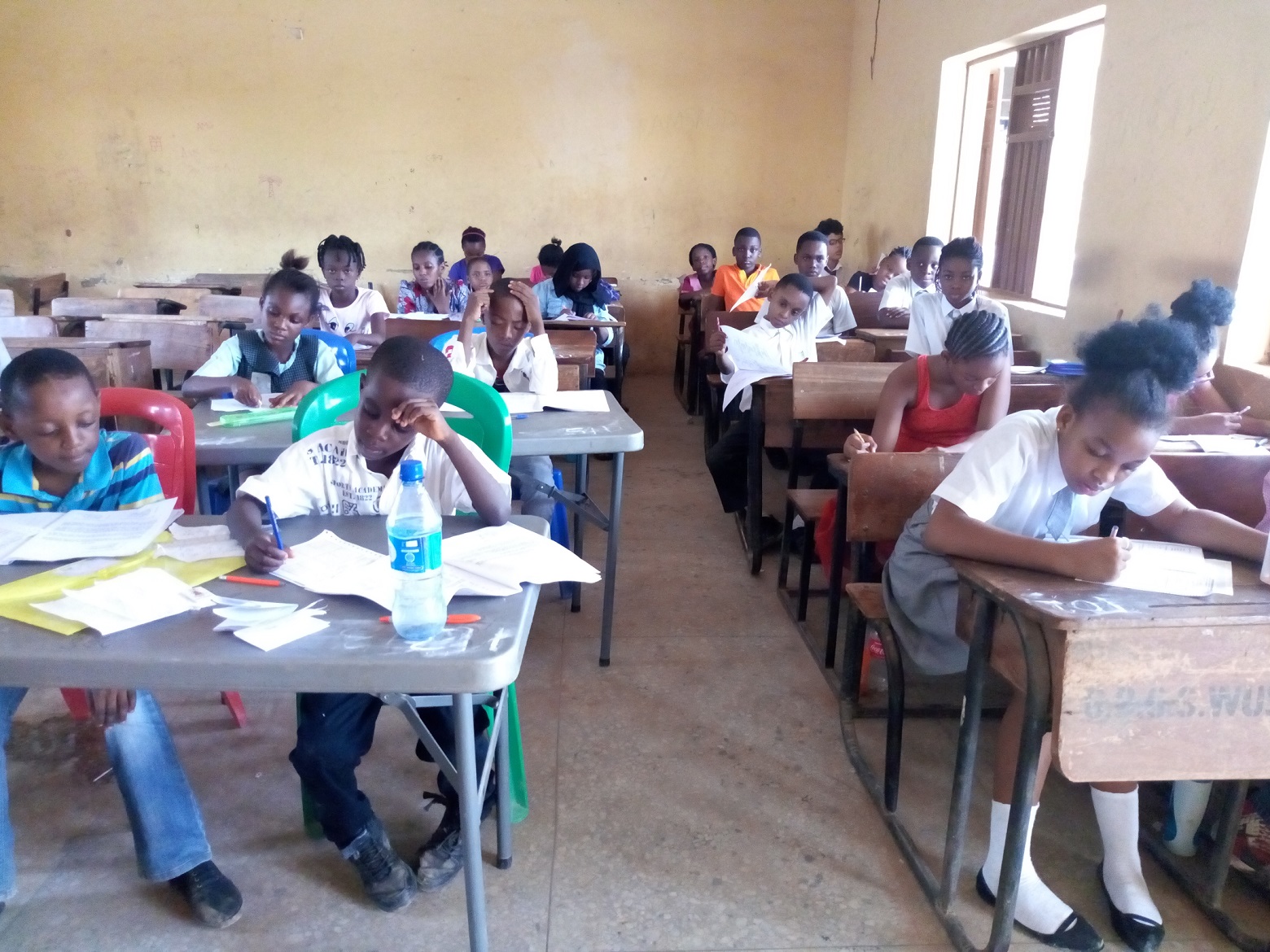An analysis of the results of the 2020 National Common Entrance Examination (NCEE) shows that 65.4 per cent of pupils that sat for the examination, preparatory for the federal government’s unity schools nationwide failed.
Details of the analysis, released by the National Examination Council (NECO) which conducted the NCEE, also showed that only 34.6 per cent of those that sat for the examination passed.
- 46, 164 out of 70, 580 pupils fail Common Entrance Exam
- 92,591 candidates jostle for 30,000 spaces in Unity schools
The entrance examination is an open test for candidates to compete for admission into the 110 unity schools in the country. The NCEE, which took place on October 17, had a total of 92,591 candidates with 70,580 sitting for the examination. A total of 16,713 candidates were reportedly absent from the examination.
Presenting the results on Monday, November 16, 2020 to the Minister of Education, Malam Adamu Adamu, NECO Registrar Godswill Obioma, said the examination was successfully conducted. The minister said a total of 70,580 candidates sat for the examination out of which 24,416 candidates passed, scoring a minimum of 66, adding that the national merit cut-off mark was 142.
Although the NCEE is organized for candidates seeking admission into federal unity colleges in the country, pupils who fail the examination still have the option of being absorbed into other junior secondary schools within their respective localities. This is in line with the requirements of the 9-year basic education policy which provides for a pupil to proceed after his primary education, without any break, to junior secondary school. Nonetheless, it is bad enough if the pass mark of an examination which had a maximum obtainable score of 200 had to be significantly lowered to allow an abysmal 34.6 per cent to pass.
While some educationists attribute the poor performance of candidates to the COVID-19 pandemic which forced pupils to remain at home for months, others identify the usual elements of dilapidated facilities, non-availability of teaching and learning materials, as well as the lip service paid by government to teachers’ welfare as critical factors. Although online lessons were organised for pupils and students by some state governments, many of them did not have access to them.
Abysmal performance at this basic level of education is scary and portends danger. Besides being a general reflection of the poor quality of basic education across the country, it also reveals a substantially weak standard in Nigeria’s basic education system. Basic education has, over decades, been characterised by scenarios of pupils learning under trees in groups of 100 children per class, with no learning material. In many cases, they are taught by unqualified teachers. Where the teachers are qualified, their monthly salaries hardly take them home.
It would be recalled that the federal government, on the occasion of this year’s World Teachers Day, announced a set of remunerations and incentives for teachers including special salary scale, payment of rural posting allowance, science teachers allowance and peculiar allowance. The retirement age of teachers and the duration of teaching career were also reviewed upward from 60 and 35 to 65 and 40 years respectively.
The newly announced pay package for teachers is intended to basically attract and retain the best brains in the system. The recent inauguration in Abuja by Malam Adamu Adamu of the National Implementation Committee on the Revitalisation and Repositioning of the Teaching Profession in Nigeria, which is commendable, is only a preliminary step in the process that will actualise the recent incentives approved for teachers.
Government needs to show enough commitment by ensuring that the new policy is backed, without any bureaucratic delays, by an Act of the National Assembly. The 2021 appropriation bill being debated by federal lawmakers should also capture all financial obligations relating to the implementation of the new policy.
State governments are, by the same token, urged to complete all legislative and financial processes that will guarantee the implementation of the policy. The newly announced pay package for teachers, when implemented, can effectively change the despicable narratives of basic education in Nigeria and replace its weak foundations with a robust standard upon which strong higher education structures can be built.

 Join Daily Trust WhatsApp Community For Quick Access To News and Happenings Around You.
Join Daily Trust WhatsApp Community For Quick Access To News and Happenings Around You.

